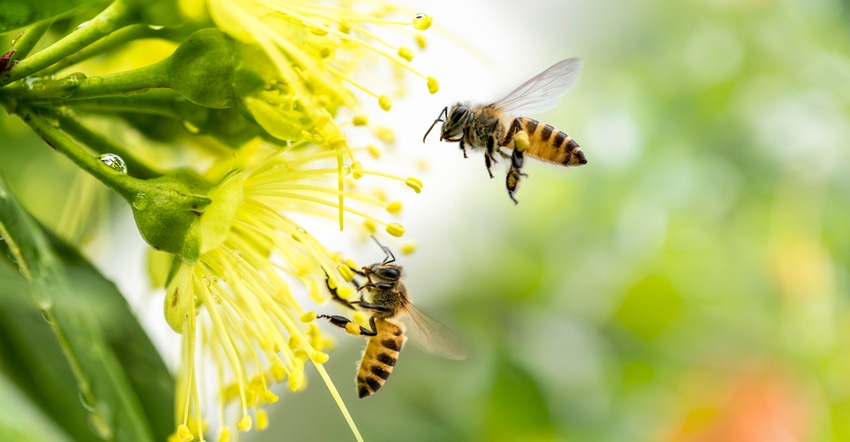
Missouri farmers can earn biodiversity credits by building pollinator habitat around the farm through a new pilot program.
Launched in partnership with the Missouri Corn Merchandising Council, Missouri Soybean Merchandising Council, Missouri Department of Conservation, MFA Inc. and the Ecosystem Services Market Consortium, the pilot program allows corn and soybean farmers to participate in ESMC’s national ecosystems services market program to earn biodiversity credits, as well as agricultural carbon and water-quality credits. The program not only quantifies, but also certifies biodiversity credits.
How it works
Farmers can create or enhance pollinator habitat within existing or new field borders, buffers, waterways, or on other nonproductive agricultural ground. Once credits are quantified, verified and certified, ESMC makes the credits available for purchase to interested buyers.
According to ESMC Executive Director Debbie Reed, members of the market are asking for opportunities to invest in increasing biodiversity through their agricultural supply chains.
“Through ESMC’s unique nonprofit public-private-partnership, we’re creating an opportunity to increase biodiversity while adding to the current demand for carbon, water-quality and water-conservation credits,” she explains in a press statement. “Our ability to stack credits and compensate farmers and ranchers is a value-added opportunity for all our members.”
The pilots test ESMC’s processes for credit generation and sales and ensure all other program aspects are operational and meet grower and buyer needs. The biodiversity pilot project is the latest in a portfolio of more than 10 projects ESMC has launched to test and refine its market program. The group is anticipating a full market launch in 2022.
Benefit to farmers
“This two-year pilot project will benefit the natural resources of our state while recognizing the efforts of farmers working to improve sustainability practices on their farms,” Clayton Light, conservation manager for the Missouri Corn Merchandising Council and Missouri Soybean Merchandising Council, says in a news release. “Many of the conservation practices also provide soil health benefits, reduce erosion, improve water quality and capture carbon in the environment.”
Light says the program is a voluntary private-market program.
According to the Food and Drug Administration, about one-third of the food eaten by Americans comes from crops pollinated by honeybees, including apples, melons, cranberries, pumpkins, squash, broccoli and almonds. But bees need a food source to do the work of pollination. That is where row crop farmers come in.
While pollinators are not needed in corn and soybean production, native bees commonly forage in these fields for food. According to Bill White, community and private land conservation branch chief with the Missouri Department of Conservation, incorporating certain practices on areas of the farm otherwise not used in production allows farmers to increase the presence of native bees.
He adds the practice also helps with monarch butterfly, bobwhite quail and migrating grassland bird populations.
ESMC offers this pilot program along with others that stack ecosystem markets like increased soil carbon and reduced greenhouse gases, water quality and water quantity. Missouri farmers interested in learning more about the pilot biodiversity project and creating pollinator-friendly landscapes, along with the current carbon pilot program, are encouraged to visit mocarbonpilot.com.
The Ecosystem Services Market Consortium contributed to this article.
About the Author(s)
You May Also Like






